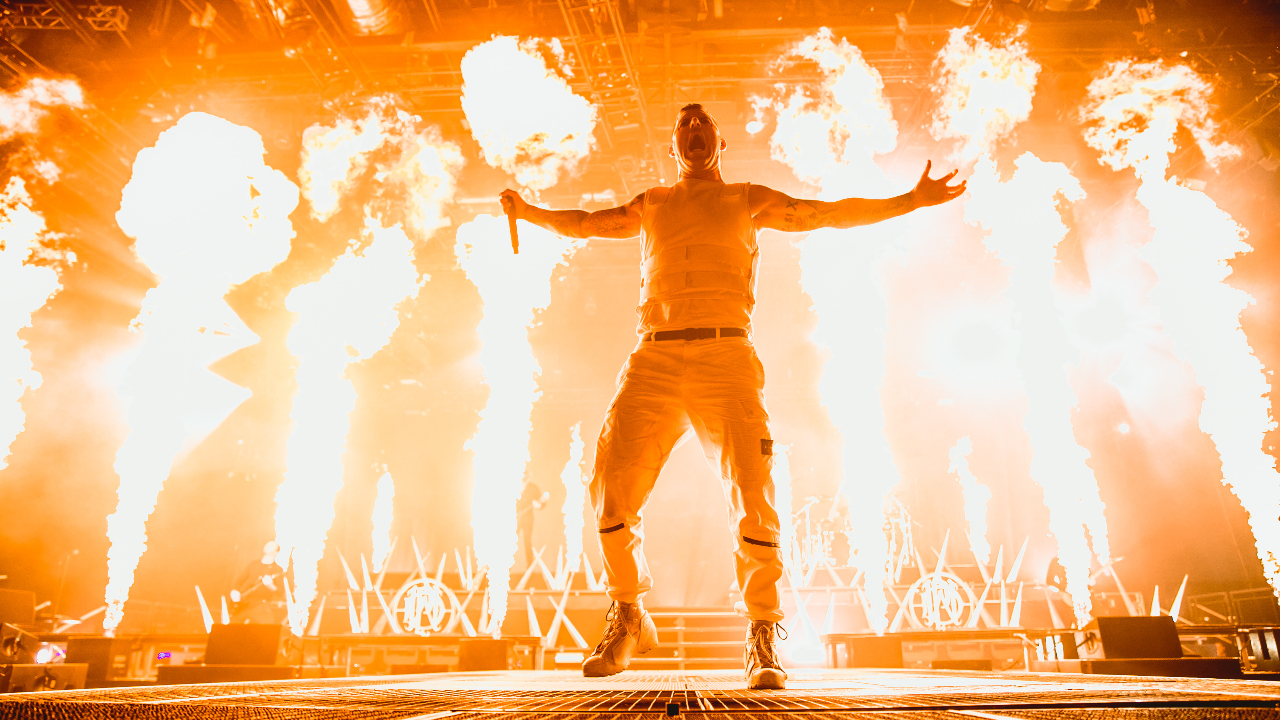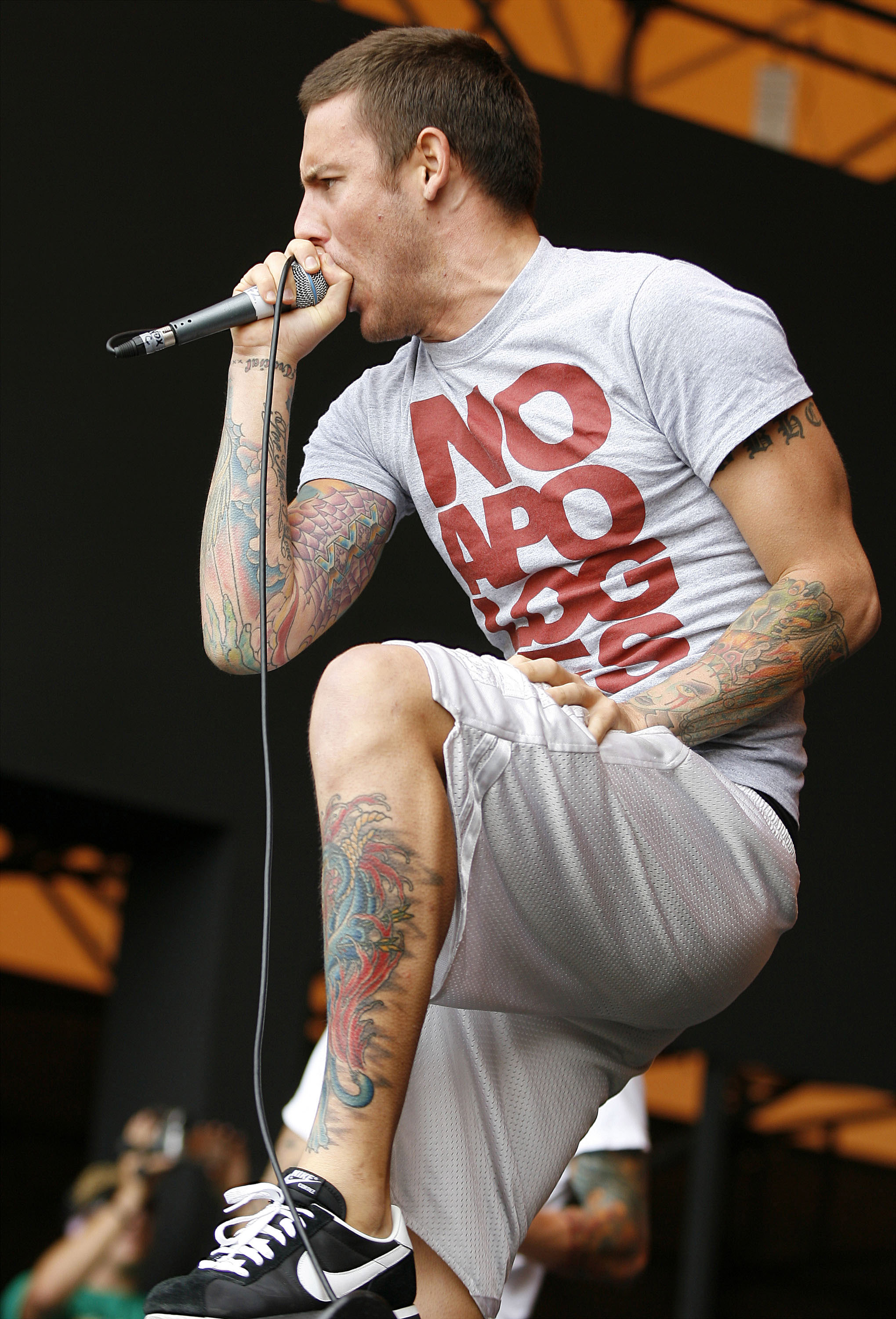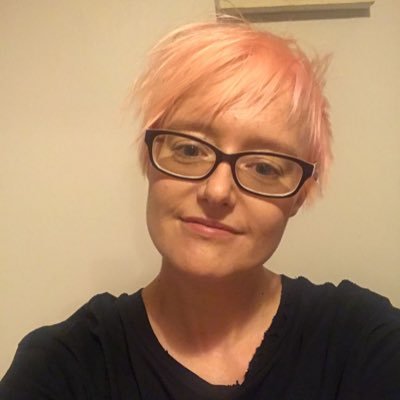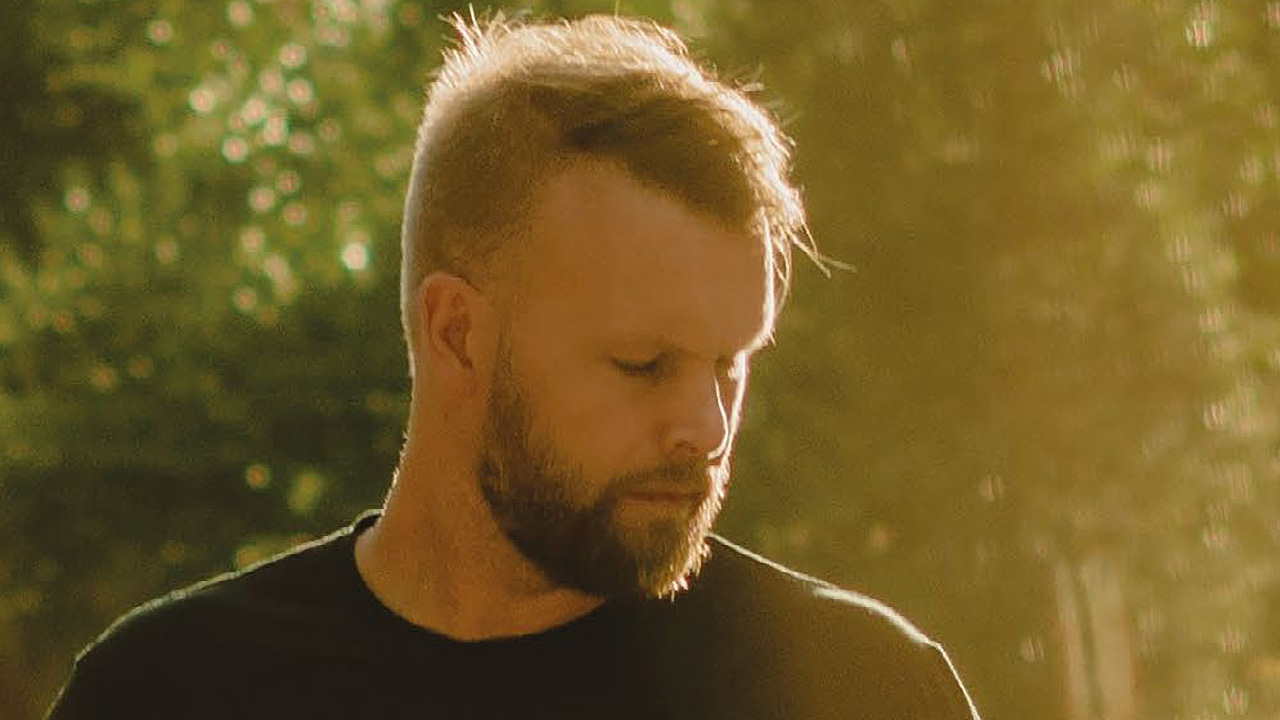"I get a message from my sister: 'Hey, I’m getting chased down the street by the riot patrol. They have the K9 unit.'" From getting the police called on their rabid crowds to becoming Australia's best live band, the incredible rise of Parkway Drive
How Parkway Drive evolved from scrappy metalcore underdogs to all-conquering, fire-breathing heavy metal heroes

It wasn’t until he got offstage that Winston McCall realised the police had been called. It was 2007, and his band, Parkway Drive, had just played the gig of their lives; the release show for their second album, Horizons, at now-defunct Brisbane venue The Arena. The singer can still recall the incandescent energy and steam rising from the windmilling, circle-pitting, crowd-surfing mass. And then…
“I get a message from my sister going, ‘Hey, I’m getting chased down the street by the riot patrol. They have the K9 unit. They’re clearing the entire district of Brisbane out,” the singer remembers, laughing.
The venue, not accustomed to the level of carnage, had called the cops on what they saw as an out-of-control situation, and the national press soon added their own fuel to the fire.
“The next day, the headlines were: ‘Heavy metal band causes riots and shuts down Brisbane CBD’,” Winston hoots. “It smashed us for years after that, because the police had this impression of who we were, but then they actually got it. They put out traffic reports going, ‘Be sure to skip past the M2 today, there’s more breakdowns on there than a Parkway track’. And that would go out on the official Tweet of the traffic report from the Queensland Police. It was the weirdest relationship with authority you can imagine’.”
Eighteen years on, that Horizons gig stands as a testament to just how much Parkway Drive were embraced in their home country so early on. According to Winston, it also marked “the explosion of metal” in Australia. Before Parkway, the only ‘heavy’ Aussie band to rise to global prominence were AC/DC. “It’s crazy to exist in your whole career in a realm where there’s no comparison,” says Winston.
Parkway Drive put Australian metal on the map. They’re the most successful metal band to have come from Down Under by some margin, having made the jump from metalcore kings to modern metal heavyweights. We’ve seen them headline Wembley Arena, Bloodstock and Wacken festivals, and release their own documentary film, 2020’s Viva The Underdogs. And they’ve paved the way for bands from across the heavy spectrum, from Northlane to The Amity Affliction, Make Them Suffer, Polaris, Alpha Wolf and Thornhill, to follow in their footsteps.
When the band formed in their late teens in 2003 in Byron Bay, a laidback surf town on Australia’s East Coast, though, these achievements were distant dreams. Back then, Winston recalls, rock gigs took place in pubs and were inaccessible to anyone under 18.
Sign up below to get the latest from Metal Hammer, plus exclusive special offers, direct to your inbox!
“We wanted to give the kids something,” he says. “That’s how the scene really started exploding. All of a sudden, they’re getting music that they can go see, that they can listen to in high school and they can relate to. We built the community literally from the ground up.”
Parkway’s first gig took place at the Byron Bay Youth Activity Centre, the only non-pub venue in town, a sweatbox with a crap stereo system and no air conditioning. After that, they toured Australia incessantly, playing at local clubs, the momentum building around them with every show. When it came to recording their debut album, Killing With A Smile, in 2005, only one producer’s name came up during a 3am discussion in the back of the van: Killswitch Engage guitarist Adam Dutkiewicz.
By this point, metalcore had edged out nu metal to become the dominant force in the scene, and Killswitch Engage, who had just dropped their second album, The End Of Heartache, were leading the charge. Meanwhile, Adam had made a name for himself as a producer, having helmed the console on Killswitch’s first two records, as well as working with Shadows Fall, All That Remains and Unearth.
“It was undeniable that he had something,” says Winston. “The clarity that he recorded with, the precision, the snap: it was defining for a generation. Everyone wanted that sound.”
Parkway guitarist Luke Kilpatrick emailed Adam to ask him if he would produce their debut, but they didn’t actually expect him to say yes. After all, they were an unknown band on the other side of the world. They were shocked when the response was, “Yeah, why not?”
“When we were in the studio, we were like, ‘Why the fuck did you want to work with us?” laughs Winston. “I’ve never got an answer to that.”
In May 2005, the band met Adam at Zing Studios in Westfield, Massachusetts, where they recorded the album over two weeks. The sessions were formative and pivotal. “One of the massive things for us was the lack of clean singing; we were attached to the aggression to begin with,” says Winston. “Before Killing With A Smile, we were what Adam referred to as riff salad, which we referred to as risotto. We got everything and threw it together until you had enough bits and you called it a song.”
He credits Adam with helping to develop the band’s serrated, beatdown-heavy metalcore. “He was like, ‘Dude, this riff is sick. Why are you only playing it for four bars? That’s the best part of the song’.”

Parkway have built their career on Adam’s advice. On their second record, 2007’s Horizons, which he also produced – and later on 2010’s Deep Blue – they brought Jeff Ling’s skyscraping lead guitar to the fore, while gang-chant choruses on tracks such as Carrion and Idols And Anchors provided them with huge, festival-ready anthems.
By this point, they were signed to Epitaph Records, one of metal’s most influential labels, and the shows were getting bigger. Camaraderie is a big part of Parkway’s appeal; they have a knack for making a sea of people feel like they’re part of their close-knit gang. So when bassist Shaun Cash quit during their first overseas tour in 2006, instead of bringing in a seasoned player, Parkway hired Jia O’Connor, their friend and merch guy, even though he couldn’t play a note on the bass guitar. With Parkway, the brand has always been: mates making music.
OG Parkway fans will argue the band’s early run of albums represent a purple patch for metalcore. The band had mastered their formula of fast riffs, breakdowns and sing-along melodies – but when work began on their fourth record, 2012’s Atlas, it suddenly felt claustrophobic. “When I listen to that record, it sounds like growing pains for me,” Winston told Hammer in 2019. “It was the exact point where we were struggling to write something we were passionate about.”
They started playing around with the sound, tones, ideas and vocal styles, although fearful of blowback from fans, they ultimately pulled back from the brink.
Winston says that “safety went out the window” with 2015’s pivot point, Ire. From the off, the mission was to make something people wouldn’t expect, and the first song they wrote would become Ire’s lead single, Vice Grip. Bringing groove and melody unashamedly into the spotlight, it was unlike anything Parkway had done before, and was greeted with horror by some corners of the fanbase. “People were like, ‘This can’t be it?’” laughs Winston.
When the track officially dropped, accompanied by a gnarly video featuring the band chucking themselves out of a plane, their social media feeds were bombarded with negative comments, as people branded the track everything from “generic” to “dad rock”. Yet Parkway knew they had something special on their hands; an anthem that could take them to another level of success. While the negativity online continued, in the festival fields where it really mattered, Vice Grip quickly became the most unifying, explosive part of the set.
“We’ve never had a song explode like that one did,” Winston told us in 2024. “For all of the controversy, fucking hell, that thing just laid waste to that festival season for us.”
From the menacing atmosphere of Crushed to the clean melodies of A Deathless Song and lush strings on Writings On The Wall, Ire was full of surprising turns. It turned them into modern metal heavyweights, a position they cemented with their sixth album, 2018’s Reverence, which severed any remaining ties with the metalcore of old.
A bigger sound needed a bigger show to match. In 2013, when the band watched Rammstein’s fire-filled headline performance at Download, it had set a collective lightbulb off in their brains. “That show was a demonstration that there are no barriers to what heavy music can be,” Winston recalled in 2019. “Production could actually heighten what you do.”
By “production”, he meant a hell of a lot of fire. Parkway became best known for their live shows, and soon found themselves headlining festivals. In 2019, they controversially topped the bill at the UK’s Bloodstock festival, drawing howls of criticism from those who deemed them not metal enough. Their walls of flame, rising platforms and explosions were enough to prove the haters wrong.
In the rehearsals for their headline performance at Germany’s Wacken festival the same year, Winston recalls the band setting off 18 pyro jets all at once, causing a flash wave of heat and blowing out the drum tech’s ear drums on impact.
“I remember all of us running in fear out of the room from the heat,” he recalls. “It was like a primal instinct to get the fuck out.”
Parkway Drive’s rise was charted in their 2020 documentary, Viva The Underdogs. To an outsider, they were flying high. But behind the scenes, tight-knit relationships had started to fray. The band had always been self-managed, with individual members taking on different roles, from band management, to press and pre-production.
“We built silos around our internal operations and the more the band grew, the more the pressures around each one of those individual things grew,” explains Winston. “We connected over the music, but there’s so much more to handle when something becomes this big, and we didn't talk about it.”
In April 2022, they cancelled their upcoming US tour with Hatebreed and The Black Dahlia Murder, and went to therapy. “We knew when we cancelled that American tour that there’d be backlash,” explains Winston. “But how do you explain to people, ‘We need to do this, otherwise it doesn’t exist’.”
He says everyone was onboard and welcomed therapy, although the sessions revealed that rifts between members had grown deeper than any of them had realised. “Everyone was like, ‘I care so much [about the band], but I don’t feel valued or understood in my role in doing it. And no one understands the sacrifices that I've made,’” says Winston.
In a vulnerable mini documentary, filmed for Australian network ABC, the band revealed some of the more uncomfortable truths behind their dynamic. In one segment, guitarist Luke admits that for his first 17 years in the band, Jia was treated as a contracted “fill-in bass player”, rather than a full-time member, something the band have now rectified: “It’s the right thing to do and it should have been done earlier.”
Meanwhile, a particularly upsetting moment sees bassist Jia discuss his regret at leaving his terminally ill partner, Tegan, behind to tour with Parkway following her cancer diagnosis. Tegan would tragically pass away during the tour. “This whole process of trying to work it out started out as trying to save the band,” says Jia at one point. “And has turned into trying to save our friendships.”
Today, Winston says the pain of going through the sessions has been worth it, because they gained, “The tools for communication and an understanding of what we've been through as a band.”
“Recording [latest album, 2022’s] Darker Still was the final act of the, ‘We’re just gonna get shit done’ era of Parkway,” says Winston. “Of putting emotions to the side to achieve the mission, no matter the cost.”
Now the band are focused firmly on their future. And they’ve continued to push their music into places you’d never expect a metal band to go. In June this year, they played a full-blown, black-tie show at Australia’s most prestigious venue, Sydney Opera House, with a symphonic orchestra. They ditched the pyro and covered the stage in plants.
“We had six months to put that show together,” says Winston. “There’s no steel, nothing artificial. It’s native flowers and grassland and it wasn't just a look – you could smell the flowers.”
Meanwhile, the crowd leaned fully into the formalities. “99.9% of the people were there in the best outfits they’ve probably ever worn in their entire life.”
The band called the show ‘Home’ – a homage to Australian culture. Winston thinks the gig raised not only the standing of Parkway Drive, but metal in general in Australia’s cultural consciousness.
“It’s the most iconic venue in our country. It’s literally like the symbol of our country,” he says. “We wanted to make a statement of what this music means. And we wanted it to be incredibly sweeping without compromising any of the heaviness. You could feel the foundation shaking and we were like, ‘This isn't compromising anything’.”
Yet there are still greater heights for Parkway to ascend to. “We still haven’t played a stadium,” Winston points out with a smile. He reveals that the band are currently working on new material and from the sounds of it, we wouldn’t put it past them to pull yet another sonic volte face on us. After all, if there’s one thing this band have shown us over the course of their 23-year career, it’s that they’ll never stand still for too long.
“We’re trying to create something powerful,” Winston says. “Sound-wise, it keeps getting bigger. But it's not for the sake of bigness. We know when a big moment can happen with the smallest sound. We’re literally masters of what we do and we know it. That’s where we’re building from.”
Parkway Drive's 20th anniversary tour continues through Europe, Australia and Asia
Danniii Leivers writes for Classic Rock, Metal Hammer, Prog, The Guardian, NME, Alternative Press, Rock Sound, The Line Of Best Fit and more. She loves the 90s, and is happy where the sea is bluest.
You must confirm your public display name before commenting
Please logout and then login again, you will then be prompted to enter your display name.


